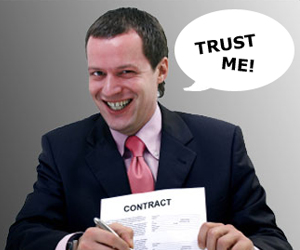Timeshare companies like Marriott Vacation Club and Wyndham often portray the ownership of a timeshare as an invaluable experience, emphasizing the quality family time, cherished memories, and diverse vacation destinations it offers. This portrayal may lead potential buyers to perceive timeshares as a worthwhile investment.
However, despite this positive image, many timeshare owners find themselves facing financial compromises. This is primarily because a timeshare does not function as a traditional investment that generates monetary returns. Unlike true investments, timeshares entail numerous additional fees that often catch owners off guard, revealing the true financial implications only after it becomes too late to backtrack.
If you’re considering purchasing a timeshare, it’s crucial not to assume that annual payments are the sole financial responsibility you’ll undertake. The reality is that timeshare buyers are burdened with a plethora of extra expenses, all aimed at enabling them to visit their designated vacation spot for a limited period each year. Before committing to a timeshare purchase, it’s important to delve into the comprehensive range of additional costs associated with timeshare ownership that you may not be aware of.
Upfront Costs
Timeshares always come with an initial cost, which represents the overall value assigned to the timeshare property. Similar to real estate, each timeshare has a purchase price that, in theory, can be paid in full upfront. The price range for timeshares varies widely, spanning from $10,000 to well over $100,000, depending on factors like location, size, and the specific timeshare developer involved. However, due to financial constraints, most timeshare buyers choose to pursue financing options.
There are several methods available for financing a timeshare purchase. One option is to establish a payment plan directly with the timeshare provider. For example, if you own a Disney timeshare in Orlando, Florida, you can gradually pay off the value of your timeshare in installments, typically involving several thousand dollars per year until the complete property cost is paid off.
Some timeshare owners opt for personal loans to cover their property expenses. This approach offers advantages such as lower monthly payments and potentially reduced interest rates. However, individuals with unfavorable credit scores or limited financial resources may consider obtaining a home equity loan.
In this scenario, the buyer’s primary residence serves as collateral for the timeshare. It’s crucial to exercise caution when considering this option, as failing to keep up with timeshare payments could result in the loss of both properties.
It’s important to note that the upfront cost presented for a timeshare does not reflect the final amount you will pay for the property. Timeshare companies typically impose average interest rates ranging from 14% to 20%. For instance, if you purchase a $30,000 timeshare with a 10% down payment of $3,000 and a 20% interest rate over a 10-year period, the total amount paid for the property will exceed $55,000. This calculation excludes maintenance fees. While personal or home equity loans may offer comparatively more affordable alternatives, interest rates will still contribute to spending thousands of dollars beyond the initial cost.
Maintenance Fees
All timeshare resorts impose annual maintenance fees on their customers. These fees are specifically designated to cover various expenses, including the salaries of resort workers and the maintenance of the property. The funds are utilized for enhancing amenities in shared areas such as pools, tennis courts, and lounges. Additionally, they contribute to in-unit upgrades like bathroom renovations, replacing outdated air conditioning units, and installing hardwood floors.
Similar to regular homeownership, periodic updates are essential for ensuring the livability of your timeshare unit. It’s crucial to have confidence that the attractive and contemporary unit you’re investing in won’t deteriorate due to the constant influx of travelers. Moreover, you want to avoid the concern of it appearing outdated within a decade.
However, the issue with maintenance fees lies in their tendency to escalate over time, much like rent for an apartment. In fact, maintenance fees are notorious for experiencing significant annual increases. Furthermore, not all of these fees are allocated towards property maintenance or compensating the resort staff. In fact, a substantial portion, ranging from 30% to 50%, often goes towards management fees, benefiting the profit-seeking management of the timeshare company.
Unfortunately, many timeshare owners fail to thoroughly review their timeshare contracts to determine if there are any caps on the annual fee hikes. While there may be clauses limiting developers from raising fees by more than 10% to 15%, even such increases can have a substantial impact.
Suppose you purchase a timeshare with the national average maintenance fee of $1,000 per year. In that case, it is reasonable to expect these rates to rise by a minimum of 5% annually. If the fees continue to increase at this rate, within a decade of owning your timeshare, you would be paying $1,500 per year—an increase of 50% compared to the initial cost.
Special Assessments
In addition to upfront costs and maintenance fees, the timeshare industry generates revenue through special assessment costs. These fees are intended to cover unforeseen maintenance needs that arise from extraordinary events like hurricanes, blizzards, earthquakes, or other natural disasters that can impact vacation properties.
Avoiding these timeshare costs can be challenging. One approach is to consider purchasing a property in an area that is less prone to weather-related catastrophes. However, since many timeshares are located in beach or mountainous regions that are inherently susceptible to such risks, completely circumventing these expenses may not always be feasible.
It is important to note that while special assessment fees are not deceptive charges imposed by developers, they are still unexpected costs that are rarely discussed during the initial signing of a timeshare contract.
Emotional Distress
The true cost of owning a timeshare extends beyond finances, as it can also bring about considerable stress and resentment, emotions that should never be associated with the idea of vacationing.
Initially, when the concept of owning a timeshare was presented to you, it may have seemed idyllic and affordable. However, as time has passed since the initial sale, you have come to realize the burdens that come with timeshare ownership. The daunting task of coordinating vacations within the limited timeframe of a timeshare week for your entire family can be overwhelming. Additionally, the lack of empathy from the timeshare company, despite the financial strain they have imposed on you, only adds to the anxiety of the situation. At this stage, you might question whether the emotional and financial costs outweigh the benefits of owning a timeshare.




